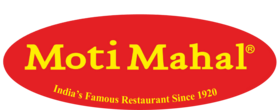Motimahal a legacy of trust and innovation
By Mokiab Gujral
Motimahal opens it’s flag ship outlet in the historical Connaught place in the heart of New Delhi
The legacy of Trust and innovation
The tandoori trail began in the Gora Bazaar (Peshawar -undivided India )in 1920 where its founder Kundan lal Gujral created history by inventing tandoori chicken,butter chicken and dal makhani . He revolutionised the Indian culinary
1. Cultural and Historical Significance
Moti Mahal, established in 1947, isn’t just a restaurant; it’s a part of India’s culinary heritage. It popularized iconic dishes like Butter Chicken and Dal Makhani, shaping North Indian cuisine as we know it.
Legacy businesses provide continuity — they preserve traditions, tastes, and stories across generations.
2. Brand Trust and Recognition
In an era of pop-up restaurants and food trends, legacy brands offer reliability and familiarity.
Moti Mahal’s name carries a decades-long reputation for quality, giving it an edge in a saturated market.
Consumers in 2025 are more skeptical, and brand trust is a key driver of loyalty — legacy brands have that trust baked in.
3. Global Influence and Soft Power
Moti Mahal has played a role in globalizing Indian cuisine. Even in 2025, it acts as a cultural ambassador for India.
Legacy businesses, especially in food, become touchpoints of identity for diasporic communities and international audiences alike.
4. Intergenerational Business Models
Legacy businesses like Moti Mahal often involve family-led succession, combining tradition with innovation.
The younger generation often brings modernization—franchising, digital marketing, cloud kitchens—while retaining the core identity of the brand.
5. Heritage as a Differentiator
In 2025, consumers look for authenticity—and heritage offers that. Moti Mahal isn’t just selling food; it’s selling a legacy experience.
In tourism, dining at a place like Moti Mahal is akin to experiencing history on a plate.
6. Adaptability Rooted in Tradition
The best legacy brands survive by evolving without losing their soul. Moti Mahal has expanded internationally, adapted to modern tastes, and maintained relevance through media, books, and global franchises.
In 2025, legacy doesn’t mean outdated—it means resilient, adaptive, and rooted.
Legacy businesses like Moti Mahal are more than relics of the past—they’re living institutions that blend heritage with innovation. In 2025, they offer authentic experiences, trust, and cultural value in a fast-paced, ever-changing marketplace. They’re important not just for economic reasons, but for identity, memory, and continuity.
About Monish Gujral

Monish Lal Gujral is the custodian of the Motimahal global chain of restaurants and the Managing Director of MotiMahal Management Services Pvt. Ltd.
Monish is credited with the trailblazing turn-around of Moti Mahal, from being a small but iconic presence in Delhi, to becoming a multi-national corporation that is well on its way to defining how the world eats Indian food. Mark Manuel (Editor Bombay Times) noted journalist says Mark Manuel Editor Bombay times (2009) Wrote “Monish Gujral is one of modern India’s success stories. In my book he is to Delhi and to rest of India what Rahul Akerkar and Moshe shek are to Bombay : a restaurateur –chef who can cook everything on the menu of his popular chain of Motimahal restaurants , a businessman, a food writer and a gourmet . I know him as a restaurateur and a friend : and , I cannot as yet decide whether I like his food better or his friendship .Probably his friendship, because Motimahal food- its butter chicken, Mata ki daal , roti and kulfi , I can get in 72 cities around India : but not Monish`s genuinely hearty and delightful company .For that , I have to wait till he visits Mumbai


